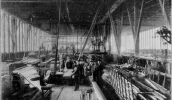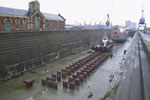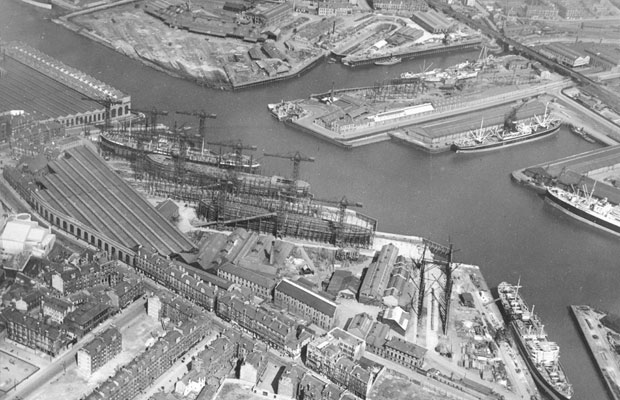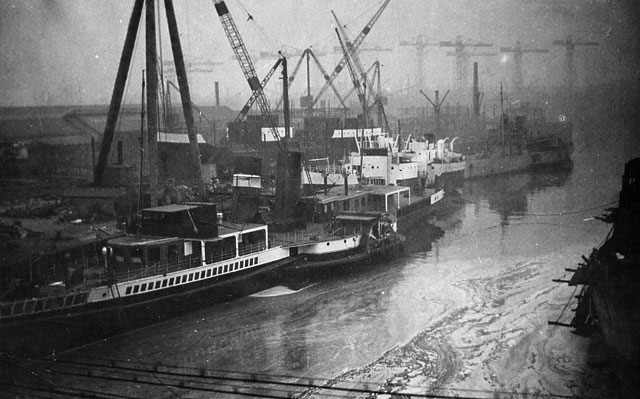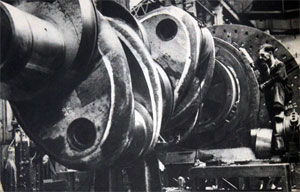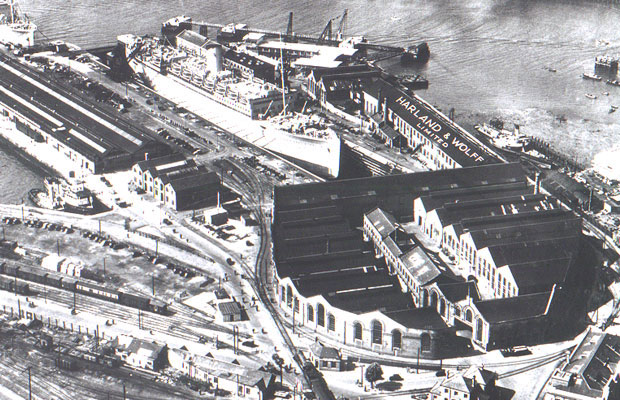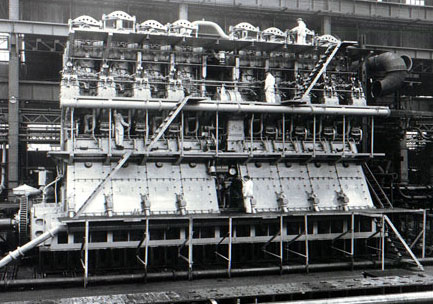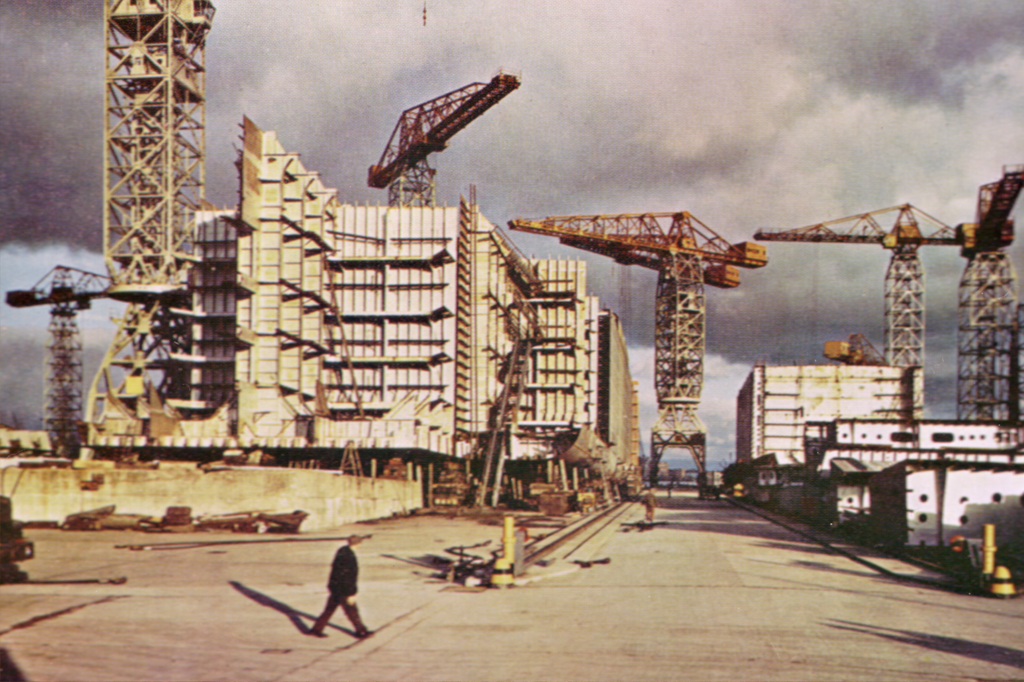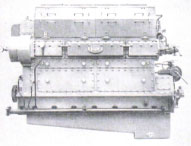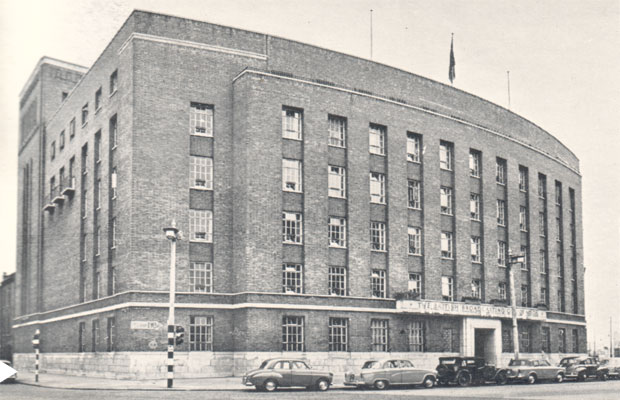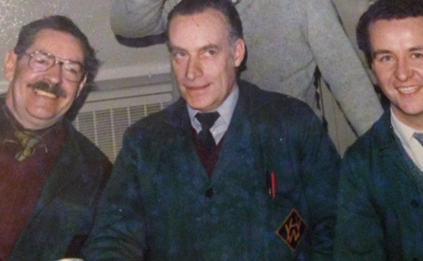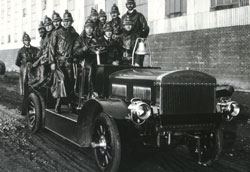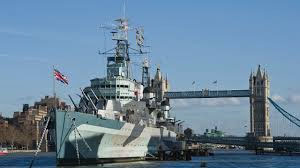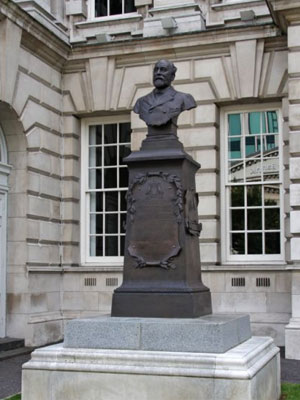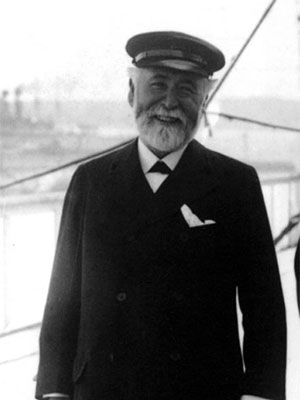
William James "Lord" Pirrie(1847 – 1924)
Born in Quebec in May 1847, William James Pirrie was educated at Belfast Academical Institution where his uncle was head of English. Other relatives, including his grandfather Captain William Pirrie, were engaged in shipping, and probably influenced his decision to engage as a ‘gentleman apprentice’ with Harland and Wolff in 1862. During his apprenticeship he spent time in Greenock on the Clyde studying marine engine building. He also showed a keen interested in financial matters, and as head draughtsman he was made a partner in 1874.
Pirrie was soon the firm’s principal salesman. Edward Harland’s wife was later to say, ‘My husband builds the ships, but Mr Pirrie gets the orders for them’. With Harland increasingly withdrawn from the company’s day to day affairs, Pirrie’s management role grew. With Irish politics in ferment, he also found himself actively engaged in public life. During the first Home Rule crisis in 1886 Pirrie announced that the firm would have no compunction about moving to the Clyde should Irish Home Rule be granted.
Nevertheless, on assuming Harland’s mantle as Lord Mayor of Belfast in 1896, Pirrie renounced his unionist and conservative affiliations and proposed some measure of participation for the nationalist and labour parties. His opinions would shift in favour of Home Rule over the next decades, before returning to the unionist fold during the first world war.
A flurry of public honours followed. Pirrie was made the first freeman of the city of Belfast, a privy councillor, high sheriff of Antrim, then Down, and finally Baron Pirrie of Belfast. In 1898, he rented Downshire House in London’s Belgrave Square where he scrutinised closely the Harland and Wolff balance sheets and ledgers brought to him from Belfast. By the time he had overseen the firm’s rise to become perhaps the most powerful force in world shipbuilding, his management techniques had grown almost dictatorial. At his death, he would be called ‘a Napoleon of industry’. At 71, he was to tell a journalist, ‘There is no pleasure like work.’
In 1924, Pirrie was returning from a voyage to Buenos Aires, recuperating from pneumonia, when he died at sea. His body was returned to Belfast aboard the Olympic, sister ship to the Titanic, and buried at Belfast City Cemetery.

|
|
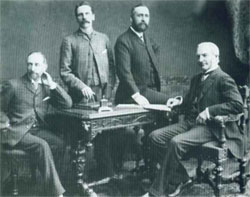 The PartnersHarland, Wolff, Pirrie and Wilson
The PartnersHarland, Wolff, Pirrie and Wilson
 The HatsChairmen, MD's, CEO's
The HatsChairmen, MD's, CEO's
 Sir Frederick RebbeckChairman 1930-41 1944-62
Sir Frederick RebbeckChairman 1930-41 1944-62
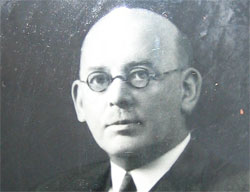 Sir Charles PalmourChairman 1941-1944
Sir Charles PalmourChairman 1941-1944
 John S BallieChairman 1962-1965
John S BallieChairman 1962-1965
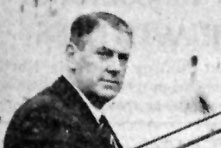 Dr Dennis RebbeckChairman 1965-1966
Dr Dennis RebbeckChairman 1965-1966
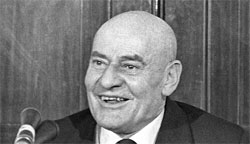 Sir John MallabarChairman 1966-1970
Sir John MallabarChairman 1966-1970
 Joe R EdwardsChairman 1970
Joe R EdwardsChairman 1970
 Alan WattActing Chairman 1970-1971
Alan WattActing Chairman 1970-1971
 Lord RochdaleChairman 1971- 1975
Lord RochdaleChairman 1971- 1975
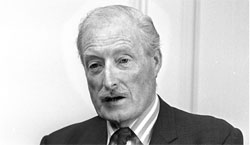 Sir Brian MortonChairman 1975-1980
Sir Brian MortonChairman 1975-1980
 Victor Alexander CookeChairman 1980-1981)
Victor Alexander CookeChairman 1980-1981)
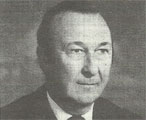 Vivian WadsworthChairman 1981-1982
Vivian WadsworthChairman 1981-1982
 Sir John ParkerChairman 1982-1992
Sir John ParkerChairman 1982-1992
 Islandmen(and Women)
Islandmen(and Women)
 Save our ShipyardSupport and solidarity
Save our ShipyardSupport and solidarity
 The War MemorialsWe Will Remember Them
The War MemorialsWe Will Remember Them
 The Bible Class
The Bible Class
 Nicknames
Nicknames
 The Yarns(and Tall Tales)
The Yarns(and Tall Tales)
 The Shipyard IndentureJW Mullholland
The Shipyard IndentureJW Mullholland

